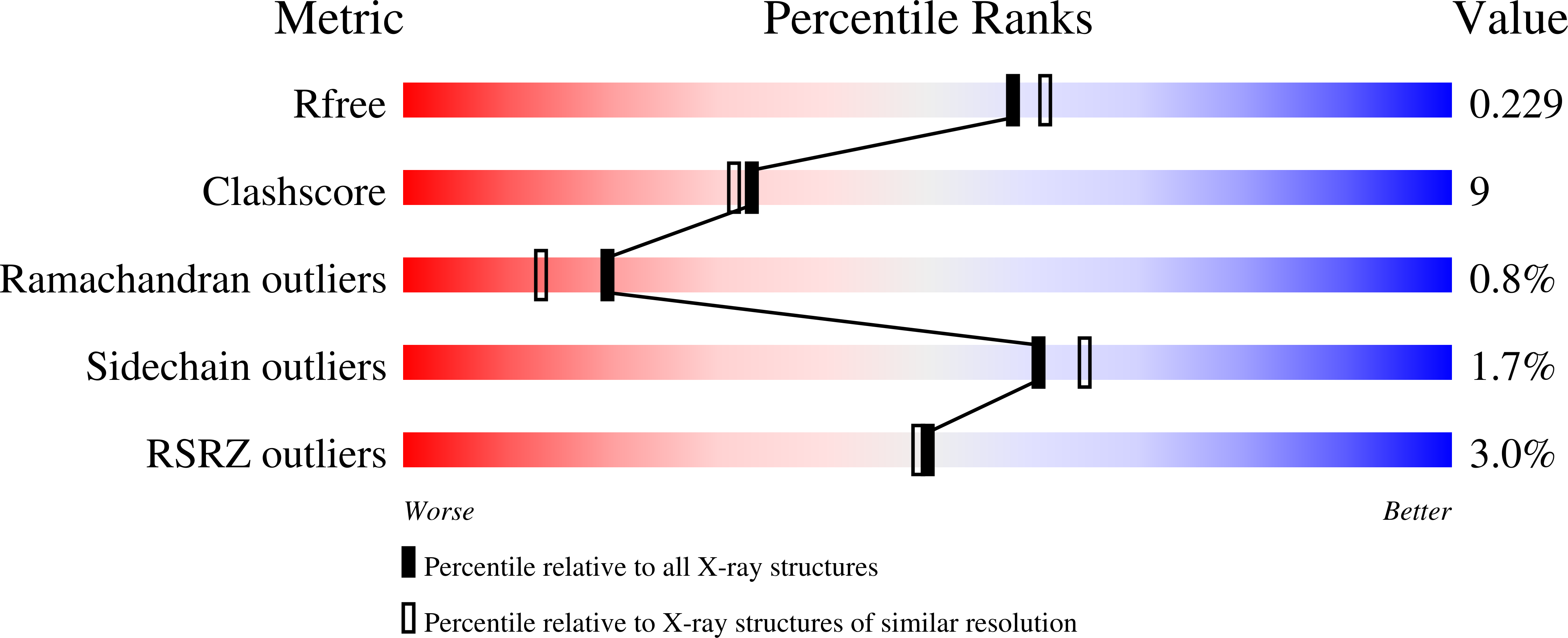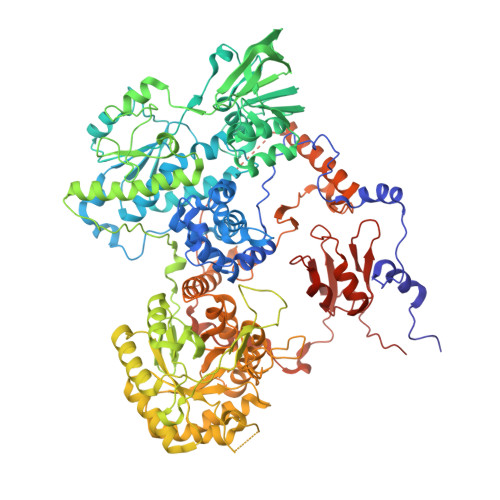The Interaction of Porcine Dihydropyrimidine Dehydrogenase with the Chemotherapy Sensitizer: 5-Ethynyluracil.
Forouzesh, D.C., Beaupre, B.A., Butrin, A., Wawrzak, Z., Liu, D., Moran, G.R.(2021) Biochemistry 60: 1120-1132
- PubMed: 33755421
- DOI: https://doi.org/10.1021/acs.biochem.1c00096
- Primary Citation of Related Structures:
7LJS, 7LJT, 7LJU - PubMed Abstract:
Dihydropyrimidine dehydrogenase (DPD) is a complex enzyme that reduces the 5,6-vinylic bond of pyrimidines, uracil, and thymine. 5-Fluorouracil (5FU) is also a substrate for DPD and a common chemotherapeutic agent used to treat numerous cancers. The reduction of 5FU to 5-fluoro-5,6-dihydrouracil negates its toxicity and efficacy. Patients with high DPD activity levels typically have poor outcomes when treated with 5FU. DPD is thus a central mitigating factor in the treatment of a variety of cancers. 5-Ethynyluracil (5EU) covalently inactivates DPD by cross-linking with the active-site general acid cysteine in the pyrimidine binding site. This reaction is dependent on the simultaneous binding of 5EU and nicotinamide adenine dinucleotide phosphate (NADPH). This ternary complex induces DPD to become activated by taking up two electrons from the NADPH. The covalent inactivation of DPD by 5EU occurs concomitantly with this reductive activation with a rate constant of ¡«0.2 s -1 . This k inact value is correlated with the rate of reduction of one of the two flavin cofactors and the localization of a mobile loop in the pyrimidine active site that places the cysteine that serves as the general acid in catalysis proximal to the 5EU ethynyl group. Efficient cross-linking is reliant on enzyme activation, but this process appears to also have a conformational aspect in that nonreductive NADPH analogues can also induce a partial inactivation. Cross-linking then renders DPD inactive by severing the proton-coupled electron transfer mechanism that transmits electrons 56 ? across the protein.
Organizational Affiliation:
Department of Chemistry and Biochemistry, Loyola University Chicago, 1068 W Sheridan RoadChicago, Illinois 60660, United States.




















